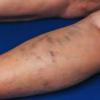Wegener’s Granulomatosis and Ayurveda: Exploring Alternative Approaches
Introduction
Wegener’s Granulomatosis and Ayurveda: Exploring Alternative Approaches now more accurately termed Granulomatosis with Polyangiitis (GPA), is a rare autoimmune condition characterized by inflammation of the blood vessels, which can affect various organs including the lungs, kidneys, and sinuses. It is a serious illness that requires comprehensive medical treatment, typically involving immunosuppressive drugs. However, many patients seek complementary approaches to manage their condition and improve their quality of life. Ayurveda, the traditional system of medicine from India, offers a unique perspective on managing chronic illnesses like GPA. This blog explores how Ayurvedic principles and treatments can potentially support conventional therapies for Wegener’s Granulomatosis.
Understanding Wegener’s Granulomatosis (GPA)

GPA is an autoimmune disease in which the body’s immune system mistakenly attacks its own tissues, leading to inflammation and damage to blood vessels. The disease often presents with a triad of symptoms: upper respiratory tract issues (such as sinusitis), lung involvement (like coughing and hemoptysis), and kidney problems (including glomerulonephritis).
The exact cause of GPA is not well understood, but it is thought to involve genetic, environmental, and immune system factors. The treatment usually includes high-dose corticosteroids and other immunosuppressive medications to reduce inflammation and prevent damage to affected organs.
Ayurveda: An Overview
Ayurveda, which translates to “the science of life,” is a holistic medical system that originated in India over 5,000 years ago. It focuses on balancing the body’s energies (known as doshas) to maintain health and treat diseases. Ayurveda emphasizes a personalized approach to health, taking into account an individual’s unique constitution (Prakriti), current state of imbalance (Vikriti), and lifestyle.
Ayurvedic Perspective on Autoimmune Diseases
In Ayurveda, autoimmune diseases like GPA can be understood through the concept of “Ama” and “Srotas.” Ama refers to toxic substances produced due to improper digestion or metabolism, which can circulate in the body and cause inflammation and damage. Srotas are the channels through which nutrients and waste products flow; when these channels become obstructed or inflamed, various diseases can occur.
The Ayurvedic treatment approach aims to eliminate Ama, balance the doshas, and restore proper function to the Srotas. This involves a combination of diet, herbal remedies, detoxification processes, and lifestyle changes.
Ayurvedic Approaches for Managing Wegener’s Granulomatosis
1. Diet and Nutrition
Ayurveda places great emphasis on diet as a cornerstone of health. For individuals with GPA, an anti-inflammatory diet can help manage symptoms and support overall health. Key dietary recommendations include:
- Anti-inflammatory Foods: Incorporate foods with anti-inflammatory properties such as turmeric, ginger, garlic, and omega-3 rich foods (flaxseeds, chia seeds, and walnuts).
- Warm, Cooked Foods: Favor warm, easily digestible foods over cold and raw foods, as these are thought to be easier on the digestive system and less likely to contribute to Ama formation.
- Avoid Heavy and Processed Foods: Minimize the intake of heavy, oily, and processed foods that can exacerbate inflammation.
2. Herbal Remedies
Ayurvedic herbs are used to support immune function, reduce inflammation, and improve overall well-being. Some commonly recommended herbs for managing autoimmune conditions include:
- Turmeric (Curcuma longa): Known for its powerful anti-inflammatory properties, turmeric can help reduce inflammation and support immune health.
- Ashwagandha (Withania somnifera): Often used to boost vitality and balance the immune system.
- Guduchi (Tinospora cordifolia): Known for its immune-modulating properties, Guduchi is believed to support the body’s ability to fight infections and inflammation.
- Boswellia (Boswellia serrata): This herb has been shown to reduce inflammation and may be beneficial for managing chronic inflammatory conditions.
3. Detoxification (Panchakarma)
Panchakarma is a series of detoxification treatments designed to eliminate Ama and restore balance to the body. It includes procedures like:
- Vamana (Therapeutic Vomiting): Aims to expel toxins from the stomach and upper digestive tract.
- Virechana (Purgation Therapy): Focuses on clearing toxins from the intestines and improving digestive health.
- Basti (Enema Therapy): Helps in cleansing the colon and is believed to balance the doshas, particularly Vata.
4. Lifestyle Modifications
Lifestyle plays a crucial role in maintaining balance and supporting treatment outcomes. For individuals with GPA, Ayurveda suggests:
- Regular Exercise: Engage in gentle, regular physical activity such as yoga or walking to enhance circulation and support overall well-being.
- Stress Management: Practice stress-reducing techniques such as meditation, deep breathing exercises, and mindfulness to help manage the emotional and psychological aspects of chronic illness.
- Adequate Rest: Ensure sufficient rest and sleep to allow the body to recover and maintain balance.
Integrating Ayurveda with Conventional Medicine
It is essential for patients with GPA to consult with their primary healthcare providers before incorporating Ayurvedic treatments.
Conclusion
Wegener’s Granulomatosis and Ayurveda: Exploring Alternative Approaches is a complex and challenging condition that requires a multifaceted approach to treatment. Ayurveda offers valuable insights and complementary strategies that can support conventional medical treatments and enhance overall well-being. By focusing on diet, herbal remedies, detoxification, and lifestyle modifications, Ayurveda aims to balance the body’s energies and improve health outcomes.
Patients should work closely with both their conventional healthcare providers and qualified Ayurvedic practitioners to develop a comprehensive treatment plan that aligns with their individual needs and health goals. Integrating Ayurvedic principles with conventional medicine can provide a holistic approach to managing Wegener’s Granulomatosis and improving quality of life.








Leave a reply